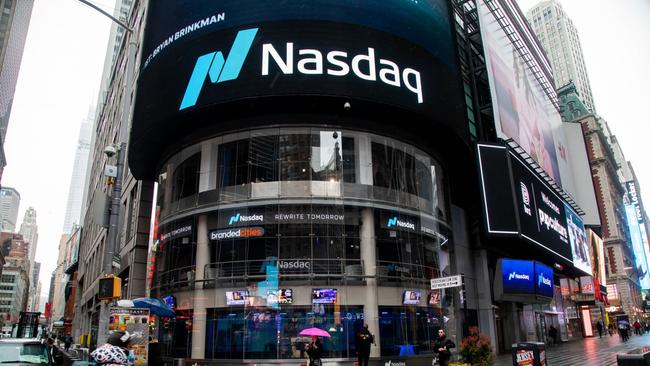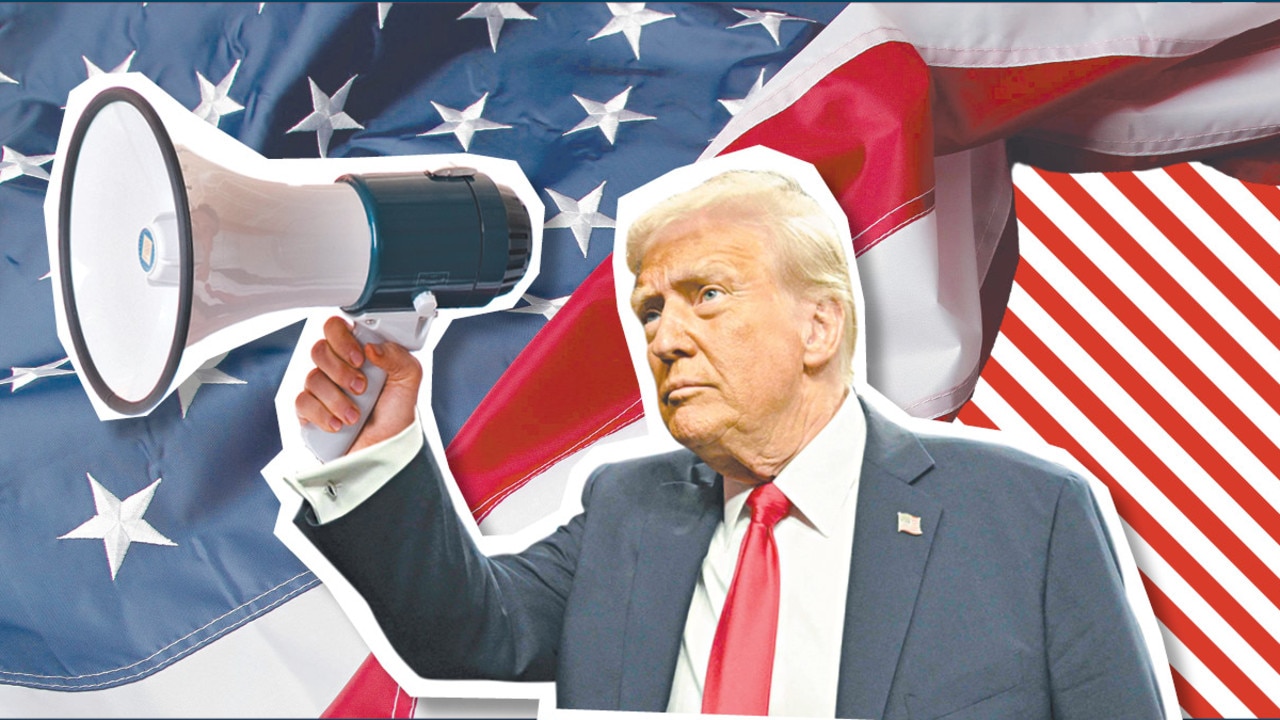Investors jump into ‘magnificent seven’ tech stocks and equities
Australian investors wanting exposure to the ‘magnificent seven’ mega-tech stocks and the US market rally have pumped almost $100m into a Nasdaq exchange-traded fund in one month.

Australian investors wanting exposure to the ‘‘magnificent seven’’ technology stocks and the US stockmarket rally have pumped almost $100m into a Nasdaq exchange-traded fund in one month, amid a $500m spike in interest in international equities.
Betashares senior investment strategist Cameron Gleeson said there had been a shift in sentiment in recent weeks from ETF investors looking to add or increase exposure to equities within their portfolios.
Betashares, one of Australia’s largest ETF managers, said there was almost $500m in net inflows into international equities across Australian ETFs in July, following $94m in net outflows in that category over the six months to June.
“We’ve seen investors of all types look to increase their exposure to equities in recent weeks, as hopes of a soft landing in the United States rise,” Mr Gleeson said.
The rebalancing of the tech-heavy Nasdaq 100 index and the US stockmarket rebound also enticed new investors into the Betashares Nasdaq 100 ETF, with almost $100m of new money flowing into the ASX-listed fund in July.
“The recent run-up in US equities, plus the better-than-expected US reporting season, has been a catalyst for Australian investors to jump back into quality tech names via our Nasdaq 100 ETF,” Mr Gleeson said.

Most of the new investment flowed into the Betashares Nasdaq-100 ETF, which now holds $3.38bn in funds under management, after the July 7 announcement of a ‘‘special rebalance’’ of the Nasdaq 100 index.
Exchange operator Nasdaq trimmed the weight of the magnificent seven stocks that made up half of the index’s weight: Microsoft, Apple, Alphabet, Nvidia, Amazon, Tesla and Meta.
The mega-cap tech stocks have driven much of this year’s US equity markets rally, fuelled by investor interest in the rise of artificial intelligence (AI).
“The recent special rebalance addressed the creep in concentration that occurred over the course of 2023, as the values of mega-cap tech companies surged on the back of sentiment around artificial intelligence and a flight to quality by investors,” Mr Gleeson said.
“The special rebalance was a healthy move in line with the index rules to ensure it remains a diversified exposure to the top 100 companies on the Nasdaq, and obviously investors here and abroad remain very positive about the long-term outlook for this exposure.”
Mr Gleeson noted AI and its commercial applications had been a focus of the US reporting season.
“While investors have been positive in general about AI and other technologies for some time now, quality tech names are starting to show their potential from a revenue perspective,” he said.
Despite the recent strong flows into international equities, fixed income dominates in the Australian ETF space with more than $3bn in net inflows this year, almost double Australian equities at $1.6bn.
Mr Gleeson said there had been “a real emphasis” on cash and fixed income by investors, who remain focused on the risk-adjusted returns of their portfolio.
“While the early signs of a shift to equities are starting to potentially emerge, the dominant narrative this year amongst investors has been the role that cash and fixed income can play in a more defensive portfolio.”
The Australian ETF industry hit $153.8bn in funds under management in July, after reaching the $150bn mark in June.





